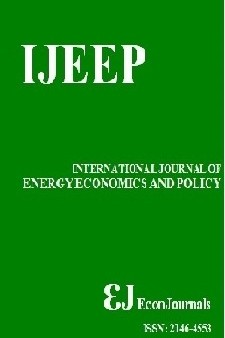The Role of Monetary Policy in Macroeconomic Volatility of Association of Southeast Asian Nations-4 Countries against Oil Price Shock over Time
The Role of Monetary Policy in Macroeconomic Volatility of Association of Southeast Asian Nations-4 Countries against Oil Price Shock over Time
This paper examines the impact of oil price, as a cause of economic crisis, and monetary policy through the four known channels of monetary transmission mechanism (interest rate, exchange rate, domestic credit, and stock price). Using a structural VAR model based on monthly data from 2002 to 2013 for ASEAN-4 countries, oil price and monetary transmission channels are compared pre- and post-crisis. The result indicates oil price remains an important factor in explaining price volatility, even though oil price has a weaker effect compared to a stronger effect of monetary transmission mechanism on prices. Stock price for Malaysia and domestic credit for the three others can affect the prices against oil price shock. Unlike prices, the output of all countries except Thailand is more affected by oil price post-crisis compared to pre-crisis. Different monetary transmission tools affecting industrial production are compared for the four countries.
Keywords:
monetary transmission, global financial crisis, oil price shock,
- Başlangıç: 2011
- Yayıncı: İlhan ÖZTÜRK
Sayıdaki Diğer Makaleler
Volatility Transmission in Oil Futures Markets and Carbon Emissions Futures
Energy Efficiency in Rent Seeking Economies:Is Credit Capable of Breaking the Energy Curse?
An Econometric Investigation of Forecasting Premium Fuel
Samuel Asuamah Yeboah, Joseph Ohene-Manu
Metropolitan Econometric Electric Utility Forecast Accuracy
Thomas M. Fullerton, George Novela, David Torres, Adam G. Walke
Texas Interconnection Grid: Economic Optimal Capacity Utilization Rate Evidence
Empirical Analysis of Renewable Energy Demand in Ghana with Autometrics
Positive and Negative Factors in International Electricity Integration
Lee Lian Ivy-Yap, Hussain Ali Bekhet
José BALİBREA-INİESTA, Antonio SÁNCHEZ-SOLİÑO, Antonio LARA-GALERA
